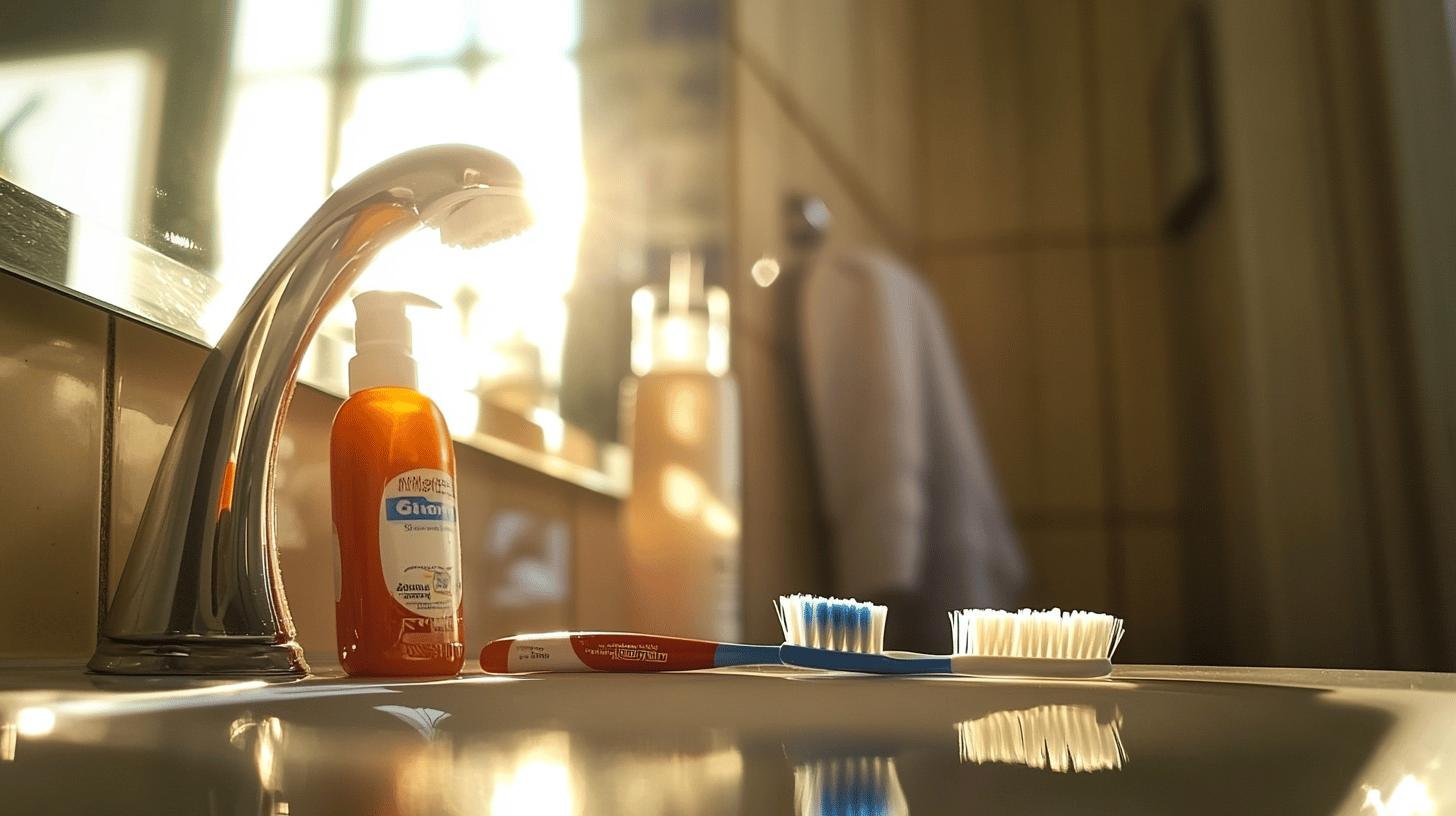TL;DR:
- Persistent bad breath (halitosis) can indicate serious health issues.
- Linked Conditions:
- Lung Cancer: Distinctive odors from VOCs.
- Kidney Failure: Breath smells like ammonia due to waste buildup.
- Heart Problems: Affects breath from poor blood flow.
- Diabetes: Produces a sweet, fruity odour from ketones.
- Liver Disease: Sweet, musty odour from compound breakdown issues.
- Oral Health Tips:
- Brush twice daily, floss daily, use mouthwash, stay hydrated, and have regular dental check-ups.
- Respiratory Issues: Sinusitis, bronchitis, and GERD can exacerbate bad breath.
- Direct Primary Care (DPC): Offers personalized care for halitosis without insurance hassles.
Ever wonder if your breath sends a secret SOS about your health and what health conditions cause bad breath? Bad breath, or halitosis, isn’t just about skipping that mint after lunch. It can be a clue to bigger health issues! We’re going to explore the surprising ways conditions like lung cancer, kidney failure, and even heart problems can sneak a message into your breath. Join me on this quick journey as we reveal how your breath might be whispering about what’s happening inside. Curious? Let’s find out what your breath is really saying!
Understanding Health Conditions That Cause Bad Breath
Ever wonder why bad breath, or halitosis, lingers beyond the morning? Sometimes, it’s more than just a nuisance. Persistent bad breath can signal bigger health issues. If your breath consistently smells terrible, it’s worth investigating what’s happening beneath the surface.
Let’s dive into some severe conditions linked to bad breath. For example, lung cancer can produce distinctive odours due to certain volatile organic compounds (VOCs). Meanwhile, kidney failure might make your breath smell like ammonia because failed kidneys allow waste to build up unchecked.
Heart problems can also be culprits, affecting breath due to poor blood flow and complications. Even diabetes can offer clues; it may cause a sweet, fruity odour thanks to ketones. All these conditions show that persistent bad breath is more than just a dental issue.
So, what should you do if your breath is off? Seek expert help! If bad breath remains, consult a doctor or dentist. They can delve into your lifestyle and health, finding the real issue. This is about more than minty freshness; it’s about ensuring your health is in check.
Oral Health and Its Impact on Bad Breath

Why does bad breath often start in the mouth? It’s usually linked to oral hygiene—or the lack of it! When you skip brushing or flossing, bacteria multiply in your mouth. These bacteria break down food particles, producing sulfur compounds that cause smelly breath. The solution? Regular oral care can keep your breath fresh and your mouth healthy.
Dental problems—like tooth decay and gingivitis—are major halitosis culprits. Nearly 30% of people face this issue, often due to these causes. Want to fend off bad breath? Here are top oral health tips:
- Brush twice daily: Keeps bacteria in check.
- Floss daily: Removes food your brush can’t reach.
- Use mouthwash: Kills bacteria and freshens breath.
- Stay hydrated: Saliva helps wash away food and bacteria.
- Regular dental check-ups: Catch and treat issues early.
Don’t underestimate dental visits for bad breath. Treating underlying dental problems, like cavities or gum disease, can vastly improve breath odour. Ignoring these issues won’t just make your breath unpleasant—it could also lead to serious health problems. Let your dentist help tackle halitosis!
Systemic Diseases Linked to Bad Breath
Notice a fruity scent on your breath? It could relate to diabetes. Diabetes may cause this sweet smell due to ketones. When the body can’t properly use sugar, it breaks down fat for energy, producing ketones—and a fruity aroma. This aroma signals potential blood sugar issues. If you or someone with diabetes notices this scent, check your sugar levels urgently.
Now, let’s talk about something fishy. Kidney disease can make breath smell fishy. Why? Normally, kidneys filter waste from the blood, but if they fail, waste builds up, leading to fishy odours. This is your body’s way of raising a red flag, saying, “Hey, something’s amiss!” If you sense this, consulting a healthcare professional is wise.
Consider liver disease, too, which can give breath a sweet, musty smell. When the liver struggles to function, it fails to break down certain compounds, which then seep out through breath. This is your body’s clue that your liver needs attention. Notice such odours? It’s time for a doctor to check your liver.
| Disease | Breath Odor | Symptoms |
|————–|—————-|———————————|
| Diabetes | Fruity | High blood sugar, ketone buildup|
| Kidney Disease | Fishy | Waste product accumulation |
| Liver Disease | Sweet, Musty | Inability to break down compounds|
These odours aren’t random quirks—they hint at larger issues. If your breath sends signals, it’s worth seeking medical advice.
Respiratory and Gastrointestinal Factors in Bad Breath

Why does bad breath sometimes seem to come from deeper inside? Respiratory infections often play a role. Conditions like sinusitis and bronchitis can ramp up mucus production, creating a playground for bacteria—and funky odours. When airways get inflamed or infected, bad breath isn’t far behind. Bacteria feast on mucus and tissues, producing those unpleasant smells. It’s not just about your mouth; it’s about your respiratory tract.
Don’t forget the stomach. Gastroesophageal reflux disease (GERD) is a known cause of bad breath. When stomach acids rise into the oesophagus and mouth, they disrupt the balance of bacteria, leading to halitosis. It’s like your stomach is hosting a party your mouth didn’t sign up for!
Here are common respiratory and gastrointestinal conditions linked to bad breath:
- Sinusitis: Causes more mucus, aiding bacteria growth
- Bronchitis: Inflames airways, allowing bacterial buildup
- GERD: Brings stomach acids into the mouth, affecting odour
- Tonsillitis: Traps food and bacteria in tonsil spaces
Addressing these issues matters. Bad breath is not just a social faux pas; it hints at deeper health problems. If it persists, tackling the root causes, whether respiratory or digestive, can truly clear the air!
Direct Primary Care: Addressing Bad Breath
Does your bad breath outstay its welcome? Direct Primary Care (DPC) could be your answer. It offers cost-effective solutions for tackling halitosis without insurance hassles. You get personalized care focused on your health needs for a regular fee.
What makes DPC ideal for diagnosing bad breath? It provides continuous care, meaning doctors won’t stop at treating symptoms. They’ll explore deeper causes like diabetes or kidney issues that might contribute to bad breath.
With no insurance red tape, appointments are longer and more thorough. Doctors get to know you and your health history, leading to more effective treatment plans. By catching issues early, DPC helps prevent small breath issues from growing into major health concerns.
Final Words
Diving into what health conditions cause bad breath reveals how connected our health is. We explored how everything from lung cancer to diabetes could be the culprit behind that unrelenting halitosis.
Your oral hygiene plays a big role, too, and maintaining good dental health habits can make a world of difference.
Addressing underlying issues with personalized care, like direct primary care, offers a chance to tackle bad breath head-on. Focusing on prevention and early diagnosis makes it possible to keep bad breath at bay and improve overall health.
FAQ
What causes different types of bad breath smells?
Bad breath smells vary depending on the source. Common causes include bacteria in the mouth, gum disease, and dry mouth. Systemic diseases like diabetes and kidney or liver failure affect breath odours differently.
Can bad breath come from the stomach?
Yes, stomach issues can cause bad breath. Conditions like GERD can bring stomach acids into your mouth, affecting breath odours. If you suspect this, consult a doctor for a proper diagnosis.
How can I cure bad breath permanently?
Permanent bad breath cures depend on the cause. Maintain oral hygiene, visit the dentist regularly, and treat any health issues. For persistent bad breath, professional advice is key.
Why might my mouth smell bad even after brushing?
If your breath smells bad after brushing, it might be due to gum disease, dry mouth, or health issues. Dental visits and professional advice can help pinpoint and resolve these problems.
Can bad breath indicate cancer?
Yes, bad breath can indicate serious health issues like cancer. Breath tests can detect some volatile organic compounds linked to certain cancers. Always seek medical advice if you’re concerned.
Are there tablets to stop bad breath?
Yes, there are tablets, like breath mints and mouthwash tablets, that can temporarily mask bad breath. However, identifying the underlying cause is crucial for long-lasting fresh breath.
Why do I have bad breath every day?
Daily bad breath could result from poor oral hygiene, dry mouth, or health conditions. Regular dental check-ups and medical consultations can help address these issues effectively.
What is halitosis?
Halitosis, or chronic bad breath, is often due to poor oral hygiene, gum disease, and certain health problems. It affects social interactions and might need professional treatment.
Can bad breath be a health issue?
Yes, bad breath can indicate underlying health problems like diabetes, liver, or kidney issues. Persistent bad breath warrants medical evaluation to prevent further complications.
What disease is bad breath a symptom of?
Bad breath might signal diseases like diabetes and liver or kidney problems. Each has distinct odours, so it’s best to seek medical advice if breath changes persist.
Which deficiency causes bad breath?
A Vitamin B12 deficiency may contribute to bad breath. Nutritional deficiencies can alter oral health and breath. Supplements and a balanced diet can help reduce these effects.
What organ failure causes bad breath?
Kidney failure can cause breath to smell fishy or ammonia-like, and liver disease could lead to a musty odour. These are serious conditions that require prompt medical attention.

